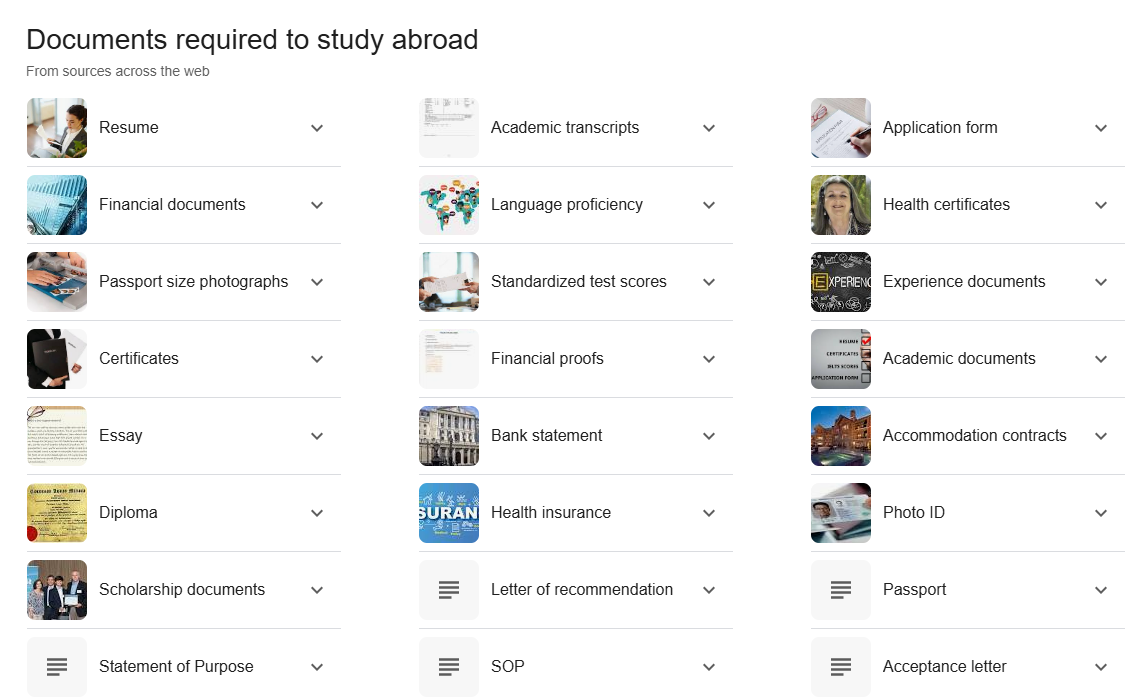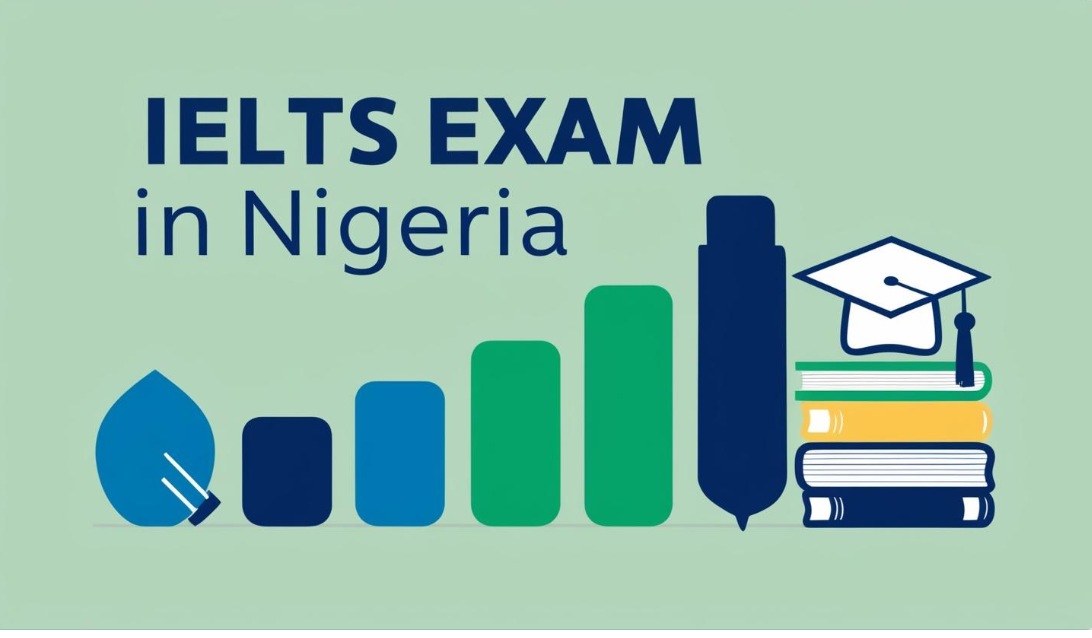What documents do I need to study abroad? The rate of studying abroad nowadays has grown rapidly. In the same manner, the eligibility requirements to study abroad has been changing from time to time. However, it all depends on different factors such as country, type of scholarship, institution, course etc.
Studying abroad is one of the biggest dreams come true for everyone, especially those who genuinely want the opportunity.
In my previous article, I taught on how you can get a scholarship and study abroad on fully funded or partial scholarship. I also mentioned easy ways to get access to unlimited scholarships.
Here we are again to look into the necessary documents which you must have as an intending international student in order for you to be qualified to school overseas.
In my first paragraph, I mentioned that the required documents depend largely on several factors. Let us briefly look into these factors one by one:
Factors Affecting Study Abroad Eligibility Requirements
1. Country-Specific Regulations
- Immigration Policies: Different countries have unique visa requirements for international students. For instance, the U.S. requires a student visa (F-1 or J-1), while Canada requires a study permit.
- Language Requirements: Countries where English is not the primary language might require proficiency in their national language, like Germany (TestDaF), France (DELF/DALF), or Japan (JLPT). Producing this requirement depends on your language.
- Cultural and Legal Expectations: Some countries might require proof of immunizations, medical reports, or police clearance certificates.
2. Institution-Specific Requirements
- Admission Criteria: Universities have unique entry requirements based on program competitiveness, such as minimum GPA, standardized tests (e.g., SAT, GRE, GMAT), or portfolios for creative programs.
- Documentation: Some institutions demand specific documents, like recommendation letters, a statement of purpose (SOP), or essays tailored to their program.
3. Program of Study
- Field of Study: Programs like medicine or law may have stricter entry requirements compared to liberal arts or humanities. For example, medical schools in Europe often require entrance exams or proof of specific coursework (e.g., biology and chemistry).
- Degree Level: Undergraduate, master’s, or PhD programs have different criteria, with advanced programs often requiring prior research experience or publications.
4. Applicant’s Background
- Academic Record: A strong academic performance may make the process easier, while lower grades might require additional documentation or alternative pathways (like foundation programs).
- Language Proficiency: Non-native speakers need to prove proficiency in the program’s medium of instruction (e.g., IELTS/TOEFL for English).
- Financial Capability: Proof of sufficient funds varies by country, depending on living costs and tuition fees.
5. Sponsorship and Scholarship Opportunities
- Self-Sponsored vs. Sponsored Students: Scholarships or government sponsorships may have extra requirements, such as maintaining a certain grade level or returning to your home country after graduation.
6. Home Country-Specific Regulations
- Some countries require exit permits, travel insurance, or documentation proving the intention to return after completing studies abroad.
7. Age of Applicant
- Certain institutions or programs might have age restrictions or preferences, especially for undergraduate studies.
I have given you a broad overview of what you need to travel abroad as an international student.
All these eligibility requirements are based on the categories mentioned above. Some of the requirements are to be met before you travel abroad while others must be met before you travel abroad.
What Documents Do I Need to Study Abroad?
The image below is a full list of Documents Needed to Study Abroad.

In a nutshell, below is a list of all the necessary documents required to process your visa and travel abroad as a student:
- Passport
- Academic transcripts
- Statement of purpose
- Letter of recommendation
- Resume or CV
- Application form
- Financial documentation
- Proof of funds
- Language proficiency certification
- National test scores
- Entrance exams
- Health Insurance
- Health Certificate
1. Passport: This is a national ID card that identifies you as a citizen of a particular country which allows you travel internationally. This is a must-have document and must be ready before other things.
2. Academic transcripts: This is a record of your performance from your previous institution. It tells your academic performance, the course you studied and the nature of it. It is gotten from the university you graduated or transferring from.
3. Statement of purpose: Statement of purpose, just like the name implies is an essay that expresses your reason(s) for traveling abroad. It could be for a research purpose or to purely study abroad.
4. Letter of recommendation: This is a formal document which evaluates the applicant sharing his experience, skills and qualifications for the the reason for which he is applying. A letter of recommendation is usually written by someone who has worked with or taught the applicant. He writes based on his experience with the applicant.
5. Resume: This is a document that summarizes your skills, education, and work experience to help you get a job or a position you are applying for. While you are not specifically looking for a job abroad, it helps the institution you are applying to to understand your level of qualification.
6. Application form: This is the first stage of your study abroad journey where you submit your personal and academic information. Without the application form, there is no evidence that you applied to any university. While application is based online, a copy of it is given to you for documentation.
7. Financial documentation: At this stage, you are required to submit your bank statement. This is to evaluate your transaction history to ensure you can pay for your expenses during your study abroad journey.
8. Proof of funds: Proof of funds (POF) is an official document that verifies that an individual or entity has the money to complete a transaction. It’s typically issued by a bank or custody agent.
9. Language proficiency certification: This is an official document which shows your language proficiency. The study destination you choose requires language proficiency for their own language. For instance, English speaking countries always request an IELTS or TOEFL certificate, or a score on another language test.
10. Entrance exams: You might need to take entrance exams for your university. This is not compulsory for all universities. Taking an entrance examination depends largely on the university you have chosen to study in.
Disclaimer: The list of documents above are generic and not tied to a particular country or region. It gives the general requirements needed to study abroad.
What Next?
You might still be confused about the whole requirements and documents needed. If you are not cleared yet, IU Schools is here to assist you.
IU Schools helps students apply and get admitted into the university of their choice. The whole process are handles by us except where the applicant himself is needed.
Conclusion
Are you planning to travel, do well to find out the exact requirements for you to successfully move abroad.
I hope this article was helpful and that you are able to get the answer to your question “What documents do I need to study abroad”. if you have more questions, drop a comment below.


